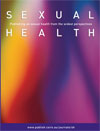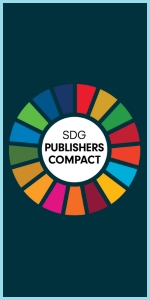
Sexual Health
Volume 16 Number 4 2019
SH18005Efficacy and safety of dapoxetine for premature ejaculation: an updated systematic review and meta-analysis
Dapoxetine has been approved for treatment of premature ejaculation for more than 10 years, but the efficacy and safety of dapoxetine in clinical practice remains unclear. This study found that dapoxetine can achieve a moderate extension on ejaculation time, however more practice in the real world is needed. This review can guide clinical practice and help patients to receive safe and efficacious medication scientifically from a physiological and psychological perspective.
SH18079Meta-analysis of the Cepheid Xpert® CT/NG assay for extragenital detection of Chlamydia trachomatis (CT) and Neisseria gonorrhoeae (NG) infections
Testing for Chlamydia trachomatis (CT) and Neisseria gonorrhoeae (NG) requires specimens from the anatomic site of infection. We conducted a systematic review and meta-analysis of the performance of the Xpert CT/NG on extragenital specimens. We found a high per cent agreement of the Xpert CT/NG with another nucleic acid amplification test.
SH18079 Abstract | SH18079 Full Text | SH18079PDF (146 KB) Open Access Article
SH18191Providing competent, comprehensive and inclusive sexual health services for men who have sex with men in low- and middle-income countries: a scoping review
Despite high rates of HIV and other sexually transmissible infections, men who have sex with men (MSM) in low- and middle-income countries face numerous barriers in accessing sexual health services. This review examines key elements to improving MSM sexual health services, focusing on creation of safe and confidential clinic environments, implementing innovative approaches to healthcare delivery, such as using mobile technology, self-testing, and crowdsourcing interventions.
SH18169ADOPTing a new method of partner management for genital chlamydia in New South Wales: findings from a pilot implementation program of patient-delivered partner therapy
 , Christopher Bourne, Leanne Burton, Larissa Lewis, Katherine Brown, Deborah Bateson, Vickie Knight, Catriona Ooi, Naomi Hoffman, Judith Mackson, Hilary Bower, Mary Stewart, Nicola Moll, Joanne Micallef, Julie Mooney-Somers, Basil Donovan, John Kaldor and Rebecca Guy
, Christopher Bourne, Leanne Burton, Larissa Lewis, Katherine Brown, Deborah Bateson, Vickie Knight, Catriona Ooi, Naomi Hoffman, Judith Mackson, Hilary Bower, Mary Stewart, Nicola Moll, Joanne Micallef, Julie Mooney-Somers, Basil Donovan, John Kaldor and Rebecca Guy
Patient-delivered partner therapy (PDPT) for chlamydia is an effective and safe additional partner management strategy, but guidance around its implementation is lacking in Australia. We developed and evaluated a pilot program of PDPT in publicly funded sexual health services and Family Planning NSW clinics. Our pilot demonstrated the successful implementation of a PDPT model for chlamydia in heterosexual patients, providing guidance on its use as standard of care and highlighting the need for PDPT to be implemented in general practice, where most chlamydia is diagnosed.
SH18130Recruiting people with HIV to an online self-management support randomised controlled trial: barriers and facilitators
 , Tanya Millard, Julia Stout, Karalyn McDonald, Sarity Dodson, Richard H. Osborne, Malcolm W. Battersby, Christopher K. Fairley, Michael R. Kidd, James McMahon, David Baker and Julian H. Elliott
, Tanya Millard, Julia Stout, Karalyn McDonald, Sarity Dodson, Richard H. Osborne, Malcolm W. Battersby, Christopher K. Fairley, Michael R. Kidd, James McMahon, David Baker and Julian H. Elliott
Recruitment for trials is challenging and can limit the success of trial outcomes. The aim of this study was to look at what helped and hindered the recruitment efforts of clinics, doctors and people with HIV (PWHIV) to the HealthMap trial. Developing and maintaining relationships between researchers and clinicians will ensure that research is clinically relevant and enhance recruitment.
SH17213Effects of traumatic events on sex workers' mental health and suicide intentions in Burkina Faso: a trauma-informed approach
Female sex workers (FSWs) in Burkina Faso are regularly exposed to violence and risks of psychological and physical trauma. The objective was to understand the experiences of violence and mental health symptomatology. Using mixed-methods, 696 FSWs were recruited via respondent-driven sampling. Respondents reported high levels of violence after initiating sex work. Nearly half of quantitative participants (41.8%) reported ever having feelings of depression. There was also a high prevalence of suicide ideation among both quantitative and qualitative participants.
SH18102Tracking the uptake of outcomes of hepatitis B virus testing using laboratory data in Victoria, 2011–16: a population-level cohort study
Many individuals living with chronic hepatitis B do not know they are infected and are not engaged in care. The 2016 Victorian Hepatitis B Strategy includes targets to increase diagnostic testing. We used data from the ACCESS surveillance system to describe hepatitis B testing and positivity in Victoria, Australia. Collection of hepatitis B diagnostic testing data provides an important mechanism to monitor progress towards implementation of the 2016 Victorian Hepatitis B Strategy.
SH19011Gender-affirming healthcare experiences and medical transition among transgender women living with HIV: a mixed-methods study
Access to medical transition and gender-affirming health care may facilitate access to HIV care among transgender (trans) women living with HIV (WLWH). Drawing on quantitative data from 48 trans WLWH and qualitative data from a sub-sample of 11 participants, this convergent parallel mixed methods study shows that HIV-related stigma and social determinants of health limit access to medical transition for trans WLWH. Stigma must be addressed in a broad range of healthcare settings, in addition to structural barriers, to increase access to gender-affirming HIV care and medical transition for trans WLWH.
In Chile, partner notification is an unexplored strategy for syphilis cases. Perspectives from healthcare providers who work in public health services revealed that Internet partner notification could be a feasible strategy, but they were concerned about confidentiality, privacy and efficacy, given the local cultural context. As the attitudes of Chilean patients about Internet partner notification is currently unknown, further research is needed.
SH18228Perceptions of people who inject drugs towards HIV pre-exposure prophylaxis in Australia
People who inject drugs are a priority for HIV prevention. This survey demonstrated a small proportion of this population would be eligible for HIV pre-exposure prophylaxis in Australia. However, given the size of the population, this may still equate to several thousand individuals nationally.
The aging process and a decrease in testosterone levels increase the odds of men experiencing sexual difficulties. Sexual difficulties were associated with lower relational and sexual satisfaction, whereas instrumental masculinity was associated with higher relational and sexual satisfaction of middle-aged and older men. Health providers should consider the relational dimension when developing interventions to reduce sexual difficulties, namely sexual dysfunction.
The 7.5-kbp chlamydial cryptic plasmid is an important molecular target for the detection of Chlamydia trachomatis. Using molecular assays targeting various regions of the chlamydial cryptic plasmid and other stable chromosomal targets, we identified a plasmid-deficient chlamydial strain in Queensland, Australia. The presence of a plasmid-deficient C. trachomatis strain serves as a timely reminder that the use of multitarget assays is superior for the successful detection of C. trachomatis.



